First Installation in Mozambique! Smart Evaporator contributes with confidence to areas with insufficient infrastructure.
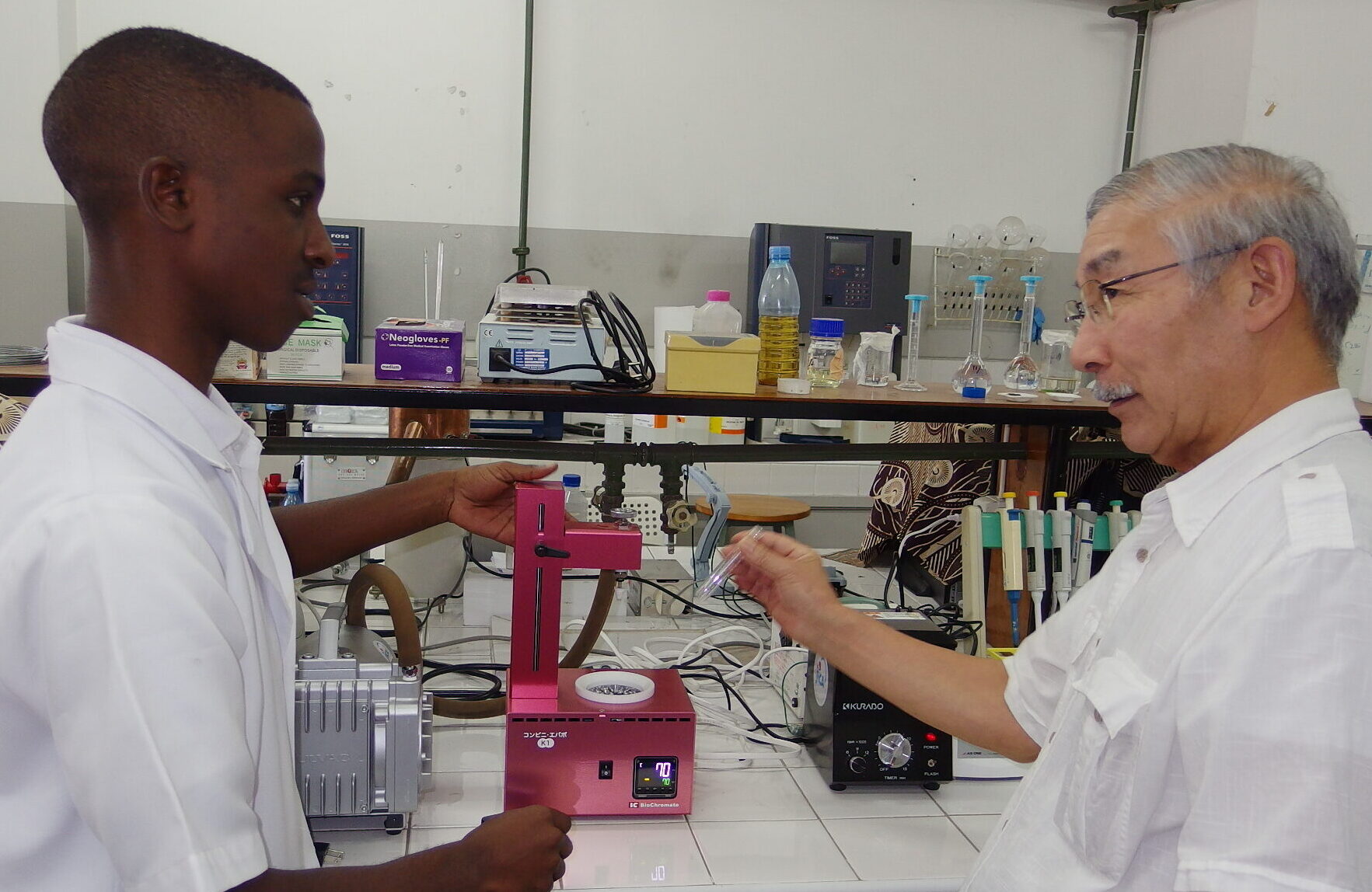
We interviewed with the researcher, Ms.Higashi in the laboratory of biological and mechanical engineering in the University of Tokyo about her work in the project “SATREPS” (Science and Technology Research Partnership for Sustainable Development).
BioChromato
Thank you very much in advance for your time today, and we appreciate for that.
Ms. Higashi
Thank you, too.
BioChromato
So would you tell us what research areas you are working on?
Ms. Higashi
I work in the international joint research program aiming to resolve global issues and to have outcomes of practical benefit to both local and global society. I’m in charge of the research of the Sustainable Jatropha Biofuel Production in Mozambique, and now work in Mozambique to advance researches and support.
BioChromato
I remember that in the past Mr.Kato from the Kanazawa Institute of Technology asked us if he can bring the Smart Evaporator to Mozambique. So do your research members use that Smart Evaporator?
Ms. Higashi
Yes, we are using the one they purchased. Their counterparts of the Kanazawa Institute of Technology in Mozambique are using it.
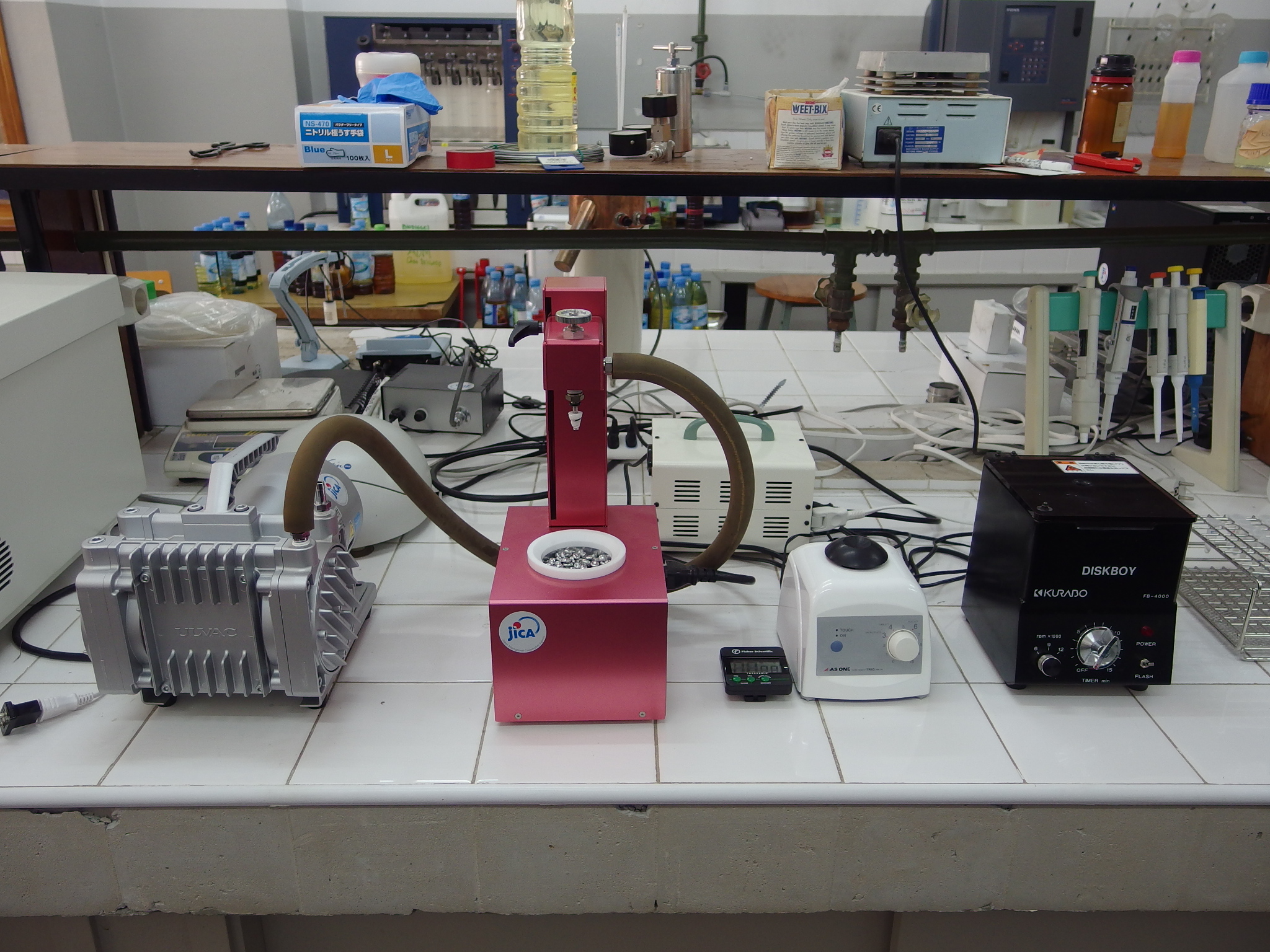
BioChromato
I understand. How do you use the Smart Evaporator for?
Ms. Higashi
We use the Smart Evaporator for measuring the oil and water volume in the jatropha seeds.
BioChromato
I see. So when measuring those items, what process do you operate exactly?
Ms. Higashi
We first remove the husks of jatropha seeds and crash those to measure the oil content. Then we add 4 grams of the normal hexane for extraction and evaporate the normal hexane with the Smart Evaporator. Then we measure the oil content with the electronic balance, and repeat that process for four times.
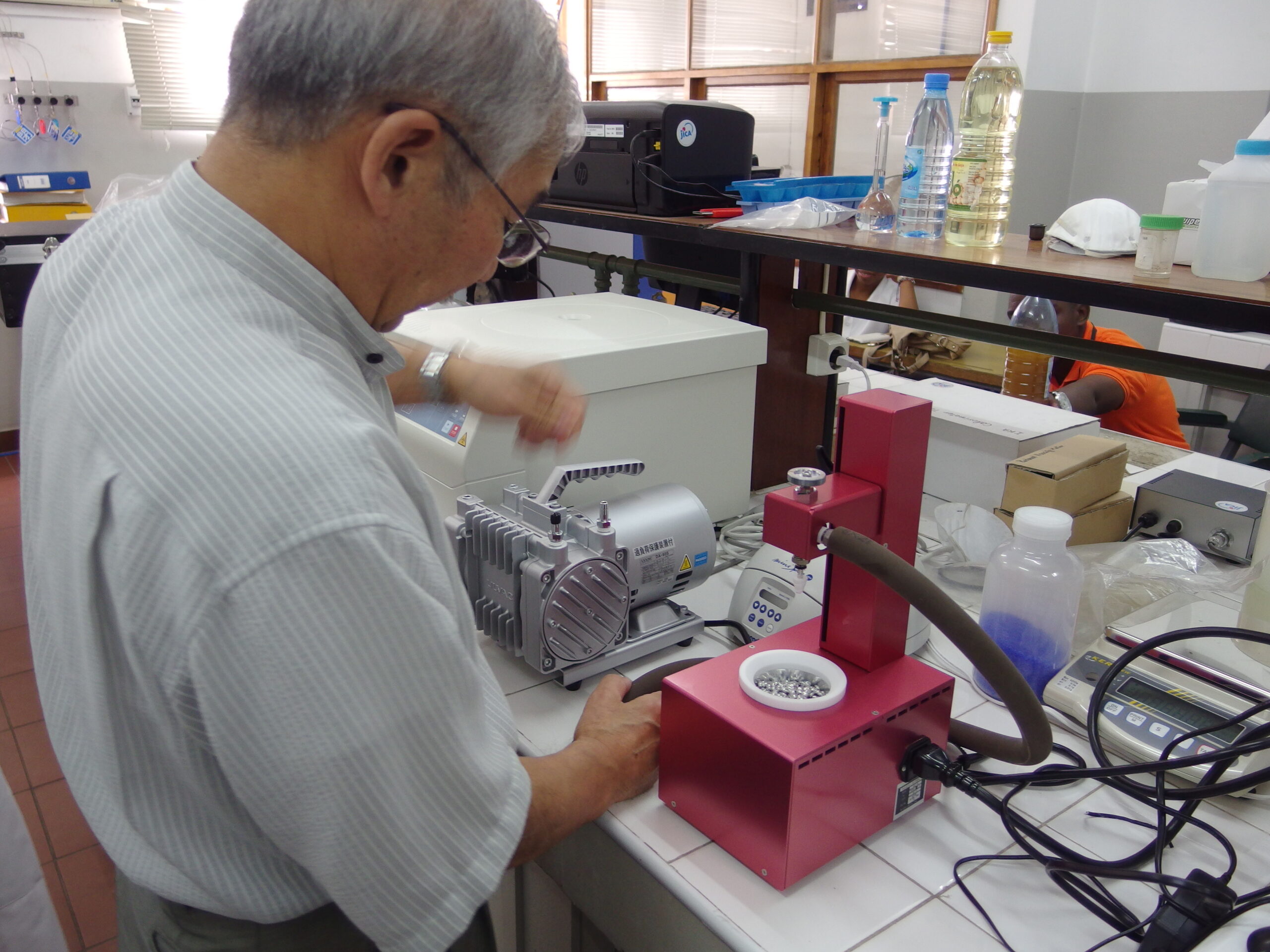
BioChromato
What is the temperature setting? How long does it take for evaporation?
Ms. Higashi
The heater is set to 70 Celsius and the normal hexane is evaporated in 6 minutes. We repeat that for four times, so it takes us 24 minutes in total.
BioChromato
So how do you process when you measure the water content?
Ms. Higashi
When measuring the water volume, we crash the jatropha seeds with husk, measure the weight with the electronic balance then evaporate water with the Smart Evaporator. Comparing the weight before and after, we can calculate the water content and do this process for one time. The heater is set to 100 Celsius, and it takes us 35 minutes to finish up.
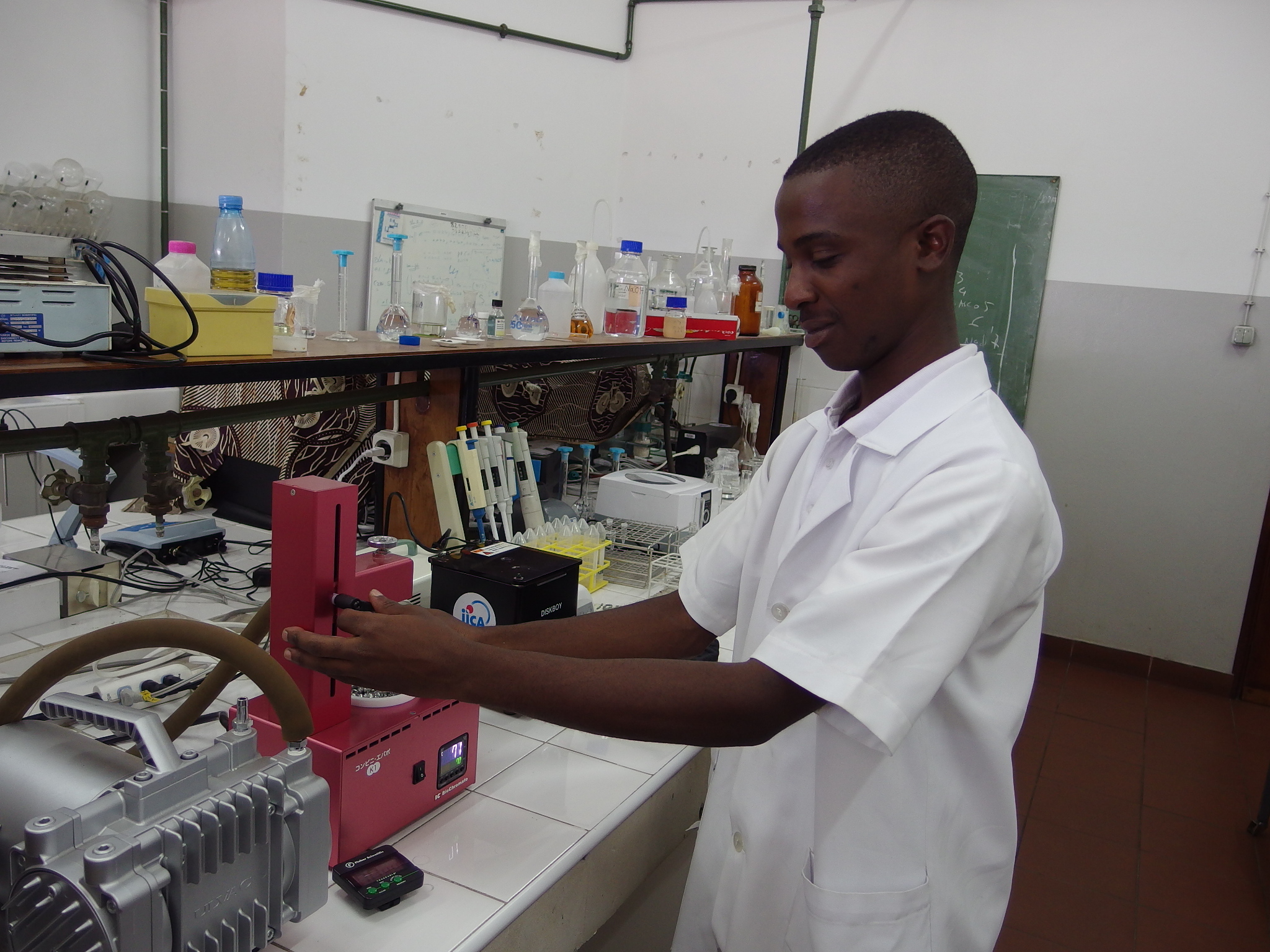
BioChromato
The evaporation volume is very small. What kinds of vials do you use with the Smart Evaporator?
Ms. Higashi
We mainly use 10ml glass test tubes.
BioChromato
Not like the rotary evaporator which always has to be with the flask, the Smart Evaporator is applicable to even 10ml glass test tube for evaporation, which is one of the strong features of the Smart Evaporator. Anything else you feel about the Smart Evaporator beside its operability?
Ms. Higashi
Well, I feel this is an easy apparatus to handle. If I could set the heater up to 110 Celcius, that would be more helpful but still we’ve been satisfied with the time duration required for evaporation.

BioChromato
We appreciate for your opinions. When you started the research in Mozambique, the Smart Evaporator was already installed and commonly used by research members. So far what kind of impressions do they have?
Ms. Higashi
Well, as I said this achieves the fast evaporation and also accurate extraction of the small volume. Also this is not a glassware, so I appreciate this is not fragile.
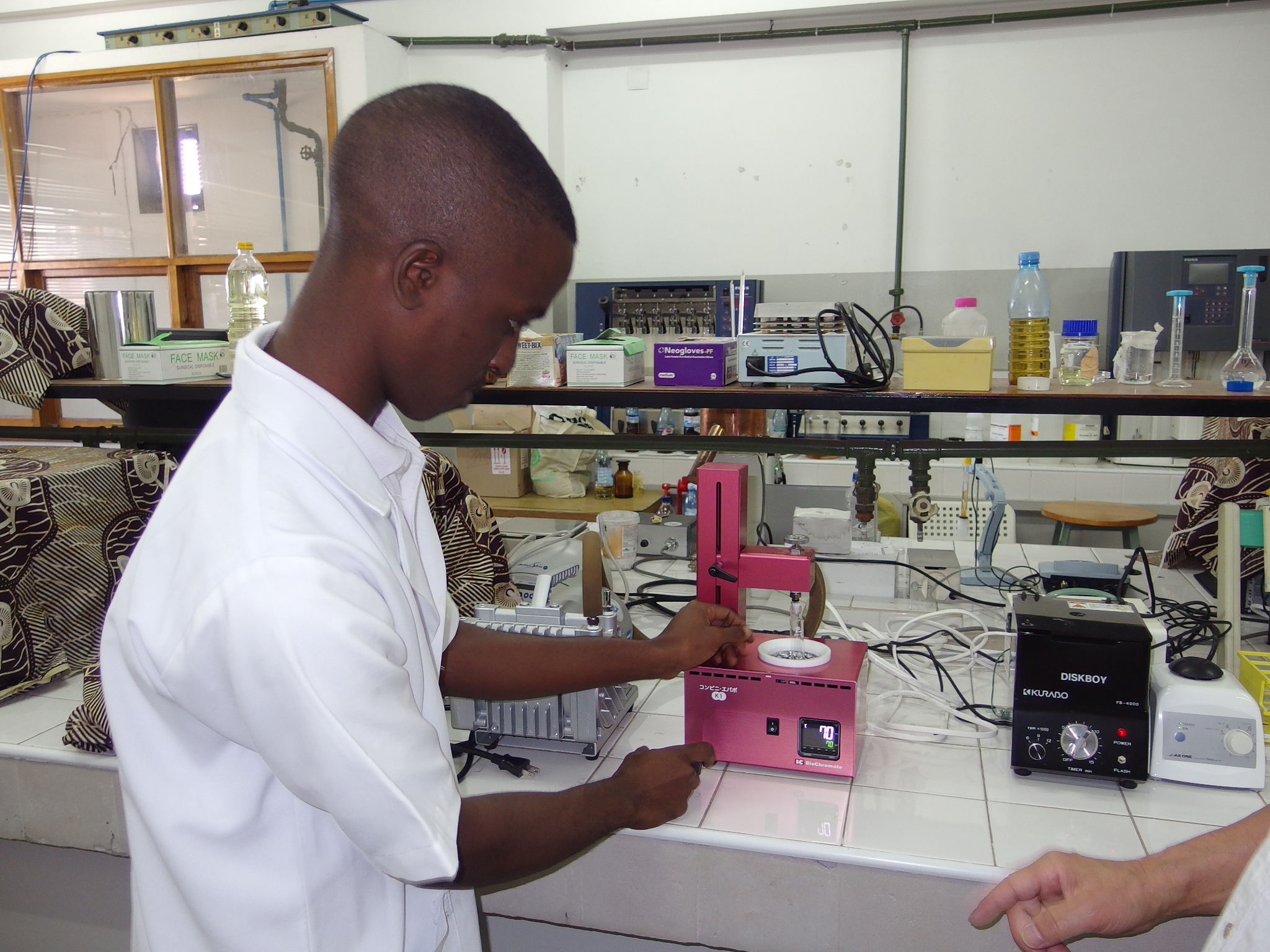
BioChromato
So have you found that the solvent or water evaporation does not take long, and also this contributes to the safe workability?
Ms. Higashi
Yes. Not only Mozambique, but many developing countries have frequent blackout so it is very important the time taken for research works remains short. Also, the apparatuses are usually handled by students who are not used to experiments and often damage the glass wares so the safe apparatus like the Smart Evaporator is valuable.
BioChromato
It’s an honored to have that said. I’ve never expected the fast evaporation contributes to the risk reduction from the blackout, but it’s such a pleasure to know that our Smart Evaporator contributes to the effective research work.
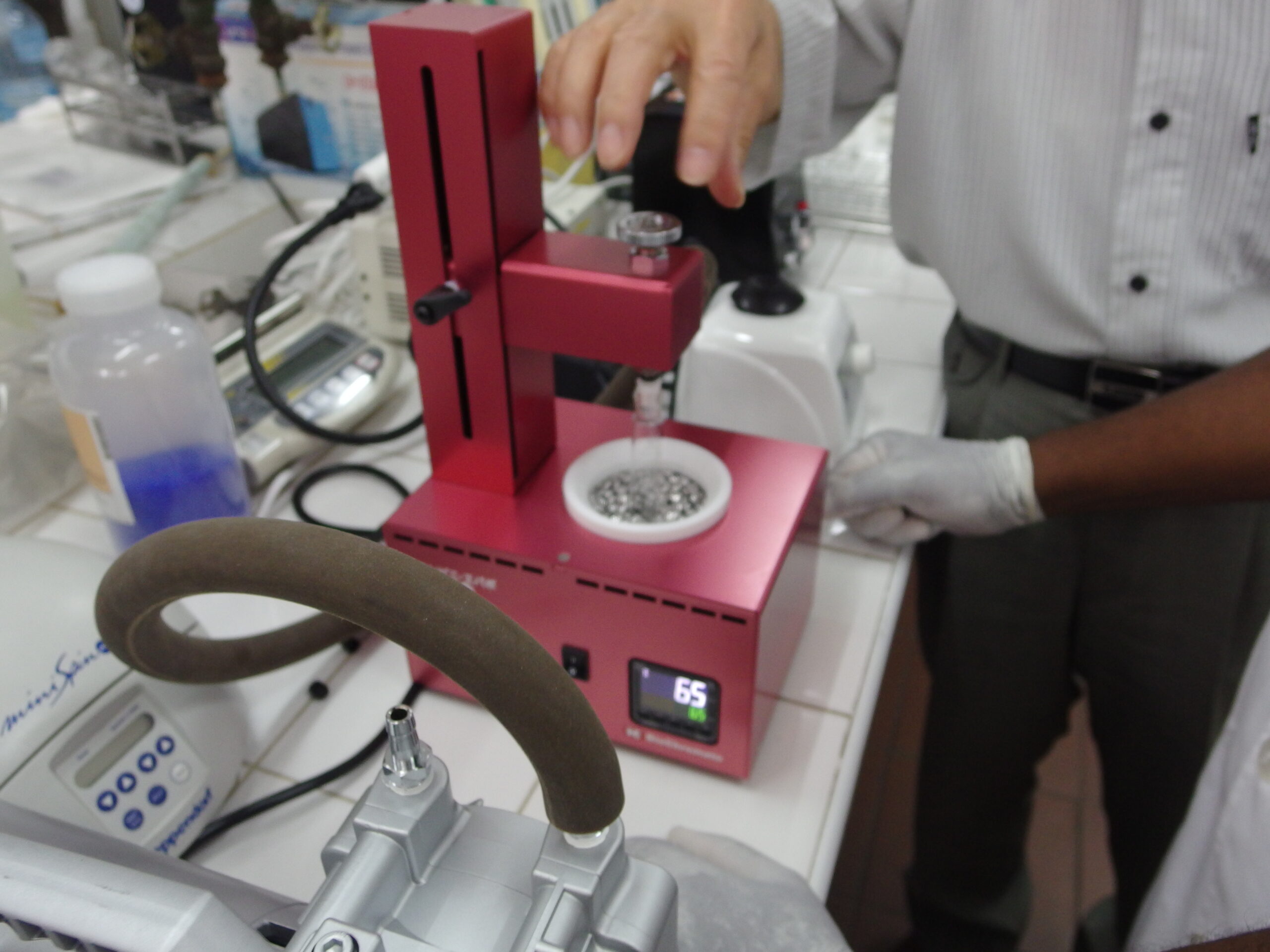
Ms. Higashi
We need to continue the research of jatropha seeds as for the valuable energy source for the next generation in Mozambique, where the cultivation of agricultural products is difficult. In the future I hope the local members would be more used to experiments, and advance the research independently and effectively with the Smart Evaporator.
BioChromato
Please feel free to contact us directly if the local members have any questions about the Smart Evaporator. We wish for even greater success in the future. Thank you for giving us your valuable time today.
Ms. Higashi
Thank you too. I appreciate your continued cooperation.
Summary
The project, where Ms. Higashi belongs to, researches the cultivation method of low risk plant under the severely dry condition like in Mozambique. I’ve never imagined this when in the past Prof. Kato asked us if he can bring the Smart Evaporator to overseas, but I’ve noticed the short-time operation can be valuable in areas with the frequent blackout, and the operability without fear of breakage is appreciated since it is not a glassware. In developing countries like Mozambique, the Smart Evaporator dedicates to research work with confidence, and I anticipate the future expansion in the worldwide market.
Creating Environmentally Friendly Fuel from Land Unsuitable for Agriculture
Sustainable Jatropha Biofuel Production in Mozambique>>
■Interested in what Smart Evaporator is? You can learn from here!
